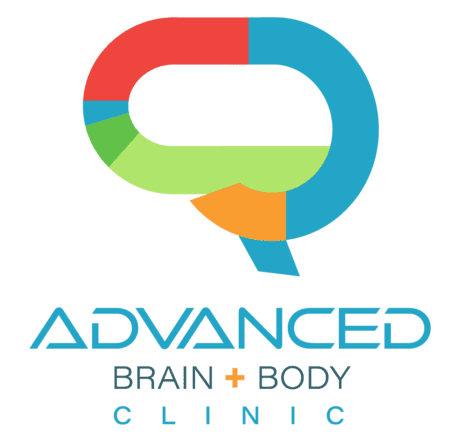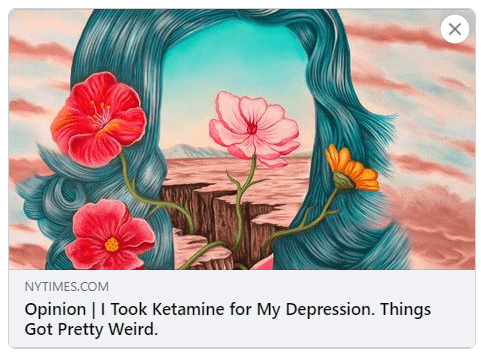The New York Times recently printed an opinion piece titled “I took ketamine for depression. Things got pretty weird.” In this piece, writer Vanessa Barbara describes her experience in Juiz de Fora, Brazil using intravenous ketamine treatment for her depression. The essay made me reflect on how ketamine therapy is administered nationwide.
I have 38 years of experience as a psychiatrist and began specializing in treatment resistant depression in 2014. I own and operate two psychiatry clinics, Manlove Brain + Body Health and Advanced Brain + Body Clinic Ketamine TMS, which both offer ketamine treatments in addition to many other medications and nonmedication treatment options.
Because ketamine is so effective against treatment resistant depression and quick-acting in patients who are on the brink of suicide, it is getting a lot of media attention – both good and bad. I’m very sorry to hear of Ms. Barbara’s experience and hope to share my response to help Ms. Barbara and her readers who may be considering ketamine for their depression.
Ms. Barbara identifies herself as a “lifelong depressive” who “turned to a more experimental form of treatment: ketamine infusions.” To be clear, Ms. Barbara is a writer, a prize-winning novelist, and she writes in a wonderfully breezy, confessional style. While I appreciate her candor in sharing her experience, please know that there are some common misconceptions reiterated in her piece.
First, ketamine is not experimental.
It was initially used as an anesthetic in both human and veterinary medicine. Although it was used illegally for its hallucinogenic effects and became known as a “party drug” in the 1970s and 80s, researchers in the early 2000s discovered that ketamine could relieve depression quickly. After years of study, psychiatrists developed dosing guidelines and infusion methods to maximize ketamine’s anti-depressant qualities. When administered in a controlled, clinical environment, ketamine offers life-saving relief for people suffering from depression, anxiety, and PTSD.
Ms. Barbara received treatment for her mental illness from an anesthesiologist.
Anesthesiologists are physicians trained in managing pain and sedation, but they have no particular training in psychiatry or the treatment of mental illnesses. Would you ask a podiatrist to treat your stomach cancer or go to a cardiologist to set a broken arm? Of course not.
Ketamine is a powerful drug that triggers the growth of neurons. This appears to make the brain more adaptable and allows people to move through their emotional problems more successfully.
To achieve the best outcome, each patient’s treatment must be personalized for their needs.
To personalize your treatment, at Advanced Brain + Body Clinic Ketamine TMS and Manlove Brain + Body Health, we do extensive lab workups to determine medical problems that may be complicating your depression. For example, we frequently find subclinical hypothyroidism, Vitamin D deficiency, metabolic syndrome, and other health issues which are known to affect brain function. In addition, we help you develop exercise routines, better eating and sleep habits, and meditative experiences. Over the 8 years I have been concentrating on treatment resistant depression, I have found that improving general physical health makes you much more responsive to treatments and much less likely to relapse.
If you are considering ketamine, make sure to choose a psychiatric clinic that offers ketamine rather than a ketamine infusion clinic. The key difference here is that a psychiatric clinic will be led by a psychiatrist who can assess your mental health needs and work with you to determine if ketamine is the right treatment option. A knowledgeable psychiatrist can provide additional treatment options or a combination of options including other medications, psychotherapy, Transcranial Magnetic Stimulation, or other psychiatric care. Ketamine infusion clinics generally do not offer these additional levels of support.
Ms. Barbara writes: the “anesthesiologist funnels the drug into a sad person’s veins . . . and hopes it perks her up.” I totally get her use of understatement here, but as a mental health professional, I have to clarify a couple of misconceptions that keep others from understanding the absolute importance of taking depression seriously.
Sadness is not the same as severe depression.
People are sad because of external, temporary circumstances like when a pet dies or when you can’t visit family because of COVID. Clinical depression, anxiety, and PTSD are mental illnesses caused by disruptions in the chemistry and physiology of the brain. They aren’t dependent on external circumstances and they often don’t clear up on their own. Patients with clinical depression are not seeking treatment to get “perked up.” In many cases, they are seeking treatment to stay alive.
Ketamine is used for patients who are so depressed that they are considering committing suicide in the immediate future, or who have such debilitating anxiety that they can barely leave their houses let alone hold down a job, or whose lives are completely disrupted by PTSD.
Ketamine is a life-saving treatment for thousands of patients just like Ms. Barbara. Read How to Have the Best Ketamine Treatment Experience to find out what happens in the clinics where ketamine does work for patients suffering from depression, anxiety, and PTSD.
If you are considering using ketamine for mental illness, find a psychiatrist experienced in ketamine therapy and approach the experience as you would any serious medical procedure. And Ms. Barbara, if you are still suffering from debilitating depression, don’t rule out ketamine. Under the right circumstances, it could work for you too.

Stephen Manlove, MD graduated from the University of Minnesota Medical School and completed residencies in Psychiatry and Internal Medicine through the University of Virginia Medical School. He holds multiple board certifications in psychiatry/neurology, internal medicine and forensic psychiatry. This deep understanding of medicine gives him a unique ability to practice truly holistic psychiatry—fusing lifestyle changes and brain health best practices with genetic testing and a detailed laboratory workup to develop a personalized plan for each patient. As an early adopter of transcranial magnetic stimulation (TMS) and ketamine/Spravato, he and the Advanced Brain + Body team have helped thousands of patients suffering from treatment resistant depression, anxiety and PTSD.

